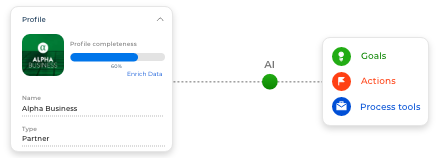the modern competitive business environment, effective customer relationship management remains vital. Companies continue to be constantly seeking ways to enhance their relationships with customers, and adopting the right customer relationship management features might make a significant impact. An effective CRM system is able to both streamline processes and also provide invaluable insights into customer behavior and preferences. Taking advantage of these features, businesses can nurture deeper connections and drive growth.
While organizations strive to improve their customer interactions, comprehending the key features of a customer relationship management system is. Including automation tools that save time to analytics capabilities that inform decision-making, these features can transform how companies connect to their clients. In the following sections, we will examine the essential CRM toolkit and emphasize the features that truly matter in building lasting customer relationships.
Key CRM Features
A key customer relationship management features is managing contacts. This aspect allows organizations to organize all customer information in one place, providing quick retrieval of key data like contact information, transaction records, and customer interactions. With efficient contact management, organizations can enhance engagement, personalize customer interactions, and ultimately enhance customer satisfaction.
Another essential aspect is automating sales processes. This aspect of a customer relationship management system simplifies multiple sales tasks, such as following up on leads, overseeing sales workflows, and forecasting revenue. By simplifying repetitive tasks, sales teams can concentrate on relationship-building and finalizing sales rather than struggling through administrative duties. This boosted effectiveness often leads to improved sales performance and increased closing ratios.
Analytics and reporting features are vital for assessing the effectiveness of customer interactions. A powerful CRM system provides data-driven insights through detailed reports and dashboards, allowing companies to analyze key performance indicators and customer behavior patterns. customer relationship management system features empowers companies to make smart choices, optimize marketing strategies, and boost customer interaction.
Incorporation Capabilities
A robust customer relationship management system includes interface capabilities that facilitate businesses to connect with multiple tools and applications smoothly. This includes connections with email platforms, marketing software, social networks, and even e-commerce platforms. By facilitating these connections, a CRM can aid optimize workflows and provide a better-rounded view of customer interactions across various channels.
Furthermore, the ability to connect with finance tools is critical for handling customer transactions and gaining insights into profitability. When CRM systems can draw data from multiple business functions, companies can achieve a consolidated data source that improves decision-making. This connection not only saves time but also minimizes the risk of manual errors, ensuring that all departments are working with accurate and current information.
Finally, effective integration capabilities improve the entire user experience by allowing teams to work within a centralized platform. This reduces the need to switch between multiple applications, making it more convenient for employees to access vital information and collaborate on customer management. A CRM that can seamlessly connect with pre-existing technologies will be a vital asset for any business looking to enhance its customer relationship management capabilities.
User Experience and Customization
The user experience is an critical aspect of any customer relationship management system. A well-designed interface enhances navigation, allowing users to access crucial features rapidly and effectively. User-friendly layouts and logical workflows reduce a learning curve, making it easier for teams to adopt their system and focus on building relationships with customers. A good CRM should emphasize usability to ensure that users can utilize its entire potential without getting bogged down by confusion.
Customization is another vital feature of any successful CRM system. Businesses have unique needs, and a one-size-fits-all solution often is inadequate. Customizable dashboards, fields, and reporting options empower organizations to tailor the CRM to match their specific processes and goals. This flexibility not only improves user satisfaction but also enables teams to track the metrics that matter most to their operations, fostering a more effective approach to customer engagement.

Additionally, the ability to integrate third-party applications enhances the user experience further. CRMs that support various integrations enable organizations to create an integrated ecosystem that connects various tools, whether for marketing, sales, or customer support. This connectivity ensures that users can maintain their workflows while benefiting from the advanced features of an robust customer relationship management system, ultimately driving efficiency and productivity in all areas.
Data Analysis and Reporting
Information analysis and reporting are vital components of any CRM system. Expertcellent enable businesses to obtain insights from consumer interactions, allowing them make informed decisions. By analyzing trends and patterns, organizations can more accurately understand their customers' behaviour, likes, and needs, leading to more effective marketing strategies and enhanced customer service.
Extensive reporting tools allow CRM users to represent data through dashboards and flexible reports. This feature helps departments track important KPIs, track sales funnels, and assess the success of campaigns. With quick access to real-time data, businesses can swiftly identify areas for development and modify their strategies to align with consumer expectations.
Moreover, proactive analytics features within CRM systems can predict future client behavior based on historical data. This allows businesses to proactively engage with customers, personalize their experiences, and drive higher conversion rates. By harnessing sophisticated analytics, companies can not only improve customer satisfaction but also achieve higher operational efficiency and profitability.
